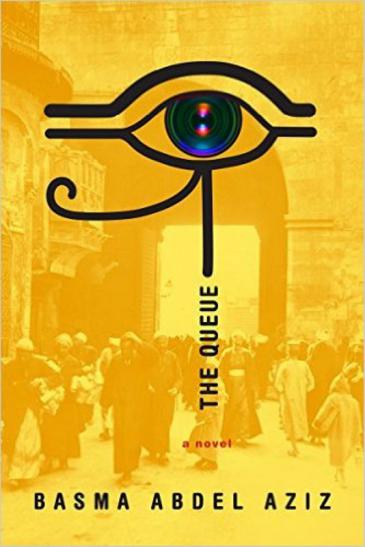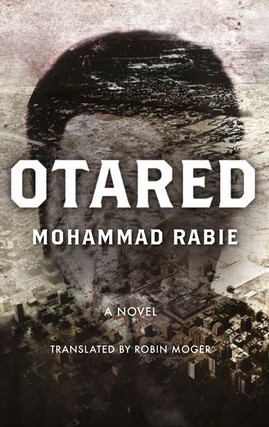Writing the Arab Uprisings: Some Dystopian reflections from Egypt
Written by Dr Sarah Marusek
Turning to the case of Egypt, Northern Notes Co-editor Dr. Sarah Marusek discusses how dystopian imaginations are responding to the rise and fall of the Arab Uprisings, showing how disillusionment has fuelled two Egyptian writers to create alternative worlds to critically engage with the failed revolutionary experience in Egypt.
The Arab Uprisings may not have realised the kind of political change that most protesters in the streets had hoped for, but they have made a deep impression on Arab culture. For example, a number of Arabic dystopian works of art have been published since 2011, including an anthology entitled Iraq + 100: Stories from Another Iraq, edited by Hassan Blasim; a darkly satirical futuristic Egyptian novel entitled Women of Karantina, by Nael Eltoukhy; a novel about homosexuality and revolution entitled Guapa, by Kuwait-born Saleem Haddad; and even a sci-fi musical comedy called Topaz Duo: Cosmic Phoenix, co-created by Qatari writer and filmmaker Sophia al-Maria. Here, I focus on two Egyptian novels, both of which have garnered media acclaim, as well as academic interest in the collection Arabic Literature in a Posthuman World, edited by Stephan Guth and Teresa Pepe.

The first is by Basma Abdel Aziz, an Egyptian writer and psychiatrist who counsels torture victims. Her satirical debut novel, The Queue, almost predicted what was later to come. Previously, she had published only short stories and nonfiction accounts of the psycho-social aspects of torture in Egypt and the system that embraces it, but after Mubarak’s fall:
…writing a factual account felt like an inadequate way to capture the surreal experience of ordinary Egyptians who lived through the uprisings and subsequent crackdown, she said. Instead, she aimed to write a universal story that reflected what was unfolding around her but transcended geography and current events… “Fiction gave me a very wide space to say what I wanted to say about totalitarian authority.”[1]
Aziz explained to me that she was compelled to write fiction ‘not because I was trying to escape from the authority’s punishment, but [because] it was an artistic choice.’ She further added that by the end of 2012, ‘I felt that the reality [was] becoming a kind of absurdity and that documentation of the actual events [was neither] available nor even fruitful or satisfying to me.’[2] Aziz subsequently wrote for twelve hours a day over two months to complete The Queue.[3] The novel recounts the deterioration of the mind, body and spirit under a totalitarian regime. As she explained, she wanted to imagine how we could:
…build in our imagination an exaggerated conception regarding the smartness, the strength and the cleverness of a totalitarian authority, how would we use this conception to resolve our internal conflict, saying: Oh, it is that strong so we can’t face it. Oh, it is that smart and clever so we can’t defeat it. The sum of this is: let’s surrender and give up, no need to resist, we will keep waiting.[4]
The events described in the novel, set in the distant future, resemble developments in Egypt. There is a disturbance centred around what is called the Disgraceful Events, ‘when a small group of people held a protest’ against a shadowy entity known as the Gate ‘on a street leading to the square’.[5] Although the protests soon swelled, security forces brutally cracked down, not unlike the Egyptian army’s massacre of peaceful protesters in Rabaa Square in August 2013. The Gate had come into power after an earlier uprising called the First Storm, when popular protests successfully challenged the security forces but then ‘fractured before [the movement] was able to overthrow the regime’.[6] The latter appears to represent Mubarak’s fall, but the former is actually an insightful prediction of what was to come – Aziz wrote the novel before the 2013 military coup. She described how back in 2012, she ‘had a strong feeling that Mubarak’s system [had not] fallen yet and that the military institute is going [to come] back to catch the political authority.’[7] I heard the same sentiment being expressed at a symposium on the uprisings at the American University of Beirut in 2012. The Queue is all about maintaining this kind of undemocratic equilibrium, so even when something happens, the authorities pretend that it does not. Still, Aziz is not hopeless, and the characters in her novel have agency, even if they ultimately fail.

On the other hand, Egyptian writer Mohammed Rabie told me that there is no hope in the dystopian world that he creates in his novel Otered. He realised that the revolution would fail back in 2012, so his subsequent novel is full of superfluous violence and is anything but satire. The dystopian future that Rabie predicts is literally hell. Rabie told The New York Times that he wrote the novel, his third, ‘in response to the “successive defeats” that advocates of democracy faced after the 2011 demonstrations that ended President Hosni Mubarak’s 30-year rule. While there are parallels to present-day Egyptian society, setting the story in the near future allowed him to write more freely, without drawing explicit connections to Egypt’s current ruler.’[8] However, much like Aziz, Rabie barely disguises his critical engagement with the Egyptian experience, even referencing the bloody events during the uprising in January 2011, when snipers killed hundreds of Egyptians,[9] and the crushing of protesters in Rabaa Square.[10] Of course, Rabie also includes additional acts of fictional brutality committed by Egyptian security forces, including the slaughter of thousands of peaceful protesters at al-Azhar Park. His novel is populated with killings, rape and a general hopelessness, reflecting a particularly bleak outlook for the future that is also apparent in a mock Egyptian Facebook event called ‘Mass suicide in a week,’ which invited people to kill themselves starting on 11 November 2016, the declared day of the Ghalaba (Revolution of the Poor). The page attracted tens of thousands of followers.[11]
But despite this presence of overwhelming despair, both Aziz and Rabie show us in their novels that the very act of writing the Egyptian Uprising indicates that the story has not ended, just yet. You can read more about the plight of writers and artists in Egypt and what these novels say about the uprising, as well as how all this links to Palestinians’ struggle for liberation through their own literature and art, in my article ‘Tomorrow and tomorrow and tomorrow: Social justice and the rise of dystopian art and literature post-Arab Uprisings.’
[1] Altermay, The New York Times, 2016.
[2] Author interview with Basma Abdel-Aziz, 28 December 2016.
[3] Ibid.
[4] Ibid.
[5] Aziz, Basma Abdel. The Queue. (London: Melville House, 2016). 7.
[6] Aziz, The Queue, 9.
[7] Author interview with Basma Abdel-Aziz, 28 December 2016.
[8] Altermay, The New York Times, 2016.
[9] Kingsley, Patrick. ‘Egyptian police “killed almost 900 protesters in 2011 in Cairo,” The Guardian, 14 March 2013.
[10] Rabie, Mohammed. Otared. Martin Moger (Trans.) (New York: Hoopoe, (2016). 68:71.
[11] ‘Absurd Egyptian Facebook Event Calling for Mass Suicide on 11/11 Amasses Huge Following,’ CairoScene, 6 November 2016.
Author
Dr Sarah Marusek
Research Fellow
